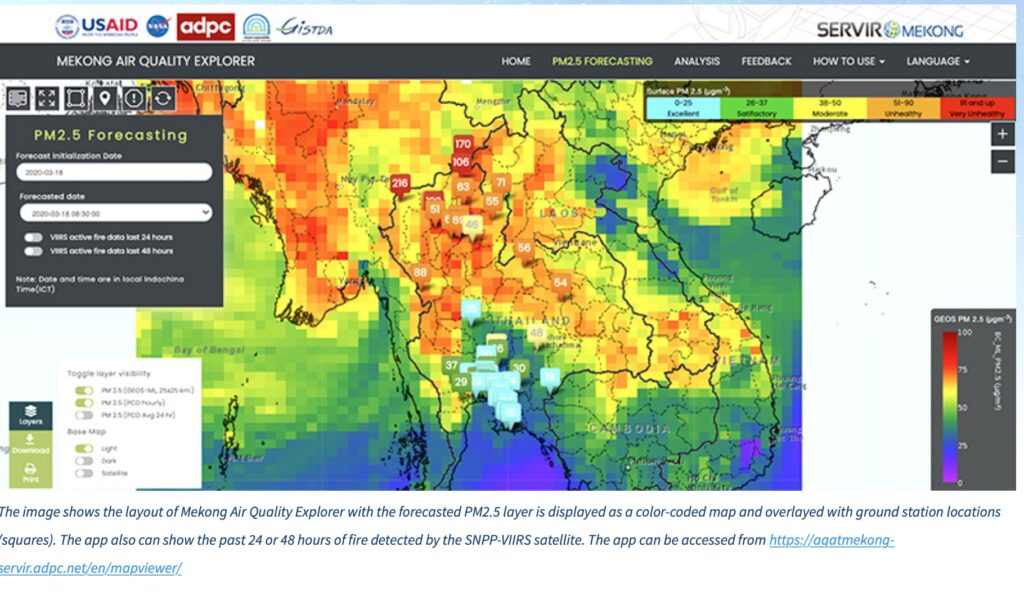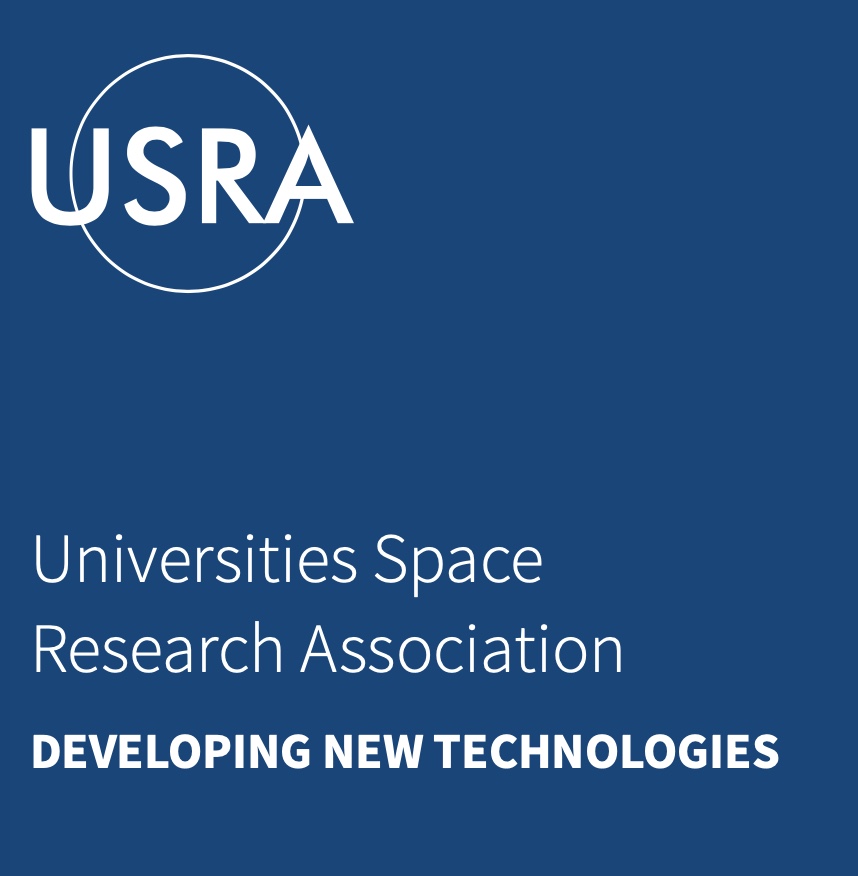
26 Nov, 2020
U.S., Thai Space Research Scientists Develop App to Monitor Air Quality in Mekong region
COLUMBIA, Md., Nov. 24, 2020 /PRNewswire/ — Universities Space Research Association (USRA) scientists have collaboratively developed a web application that will help mitigate the impact of air pollution in Thailand where seasonal air pollution resulting from forest fires and agricultural burning create a major human health issues. The new app builds on existing air quality monitoring through incorporating satellite observations and model forecasts of conditions.
Developed as part of NASA’s SERVIR project, this application will address air pollution challenges in the lower Mekong Delta. The SERVIR Team led by USRA’s Dr. Pawan Gupta included Githika Tondapu and Francisco Delgado; scientists from University of Alabama, Huntsville, from NASA and from the Asian Disaster Preparedness Center. The Royal Thai Government Pollution Control Department (RTGPCD) and the Geo-informatics and Space Development Agency (GISTDA) –Thailand’s equivalent of NASA – were also part of the development team.


Using NASA’s Goddard Earth Observing System (GEOS), and data obtained from Earth observing satellites, this new application, called SERVIR-Mekong Air Quality Explorer, will provide timely air quality monitoring and forecasting to support air quality management and decision-making efforts. Current work in Thailand heavily relies on ground-based monitoring, which has limited spatial coverage leading to gaps in availability and timely access to required information.
SERVIR is a joint partnership between USAID and NASA and works with regional partners around the world to use Earth observations and geospatial technologies to address environmental challenges.
“Through SERVIR we’re proud to support the Royal Thai Government’s Pollution Control Department in using satellite observations and model outputs to monitor and forecast air quality in Thailand,” says Dr. Lawrence Friedl, Director, Applied Sciences Program at NASA.
This regional web-based information system application is aimed at:
- Visualizing historic and near real-time satellite observations of air quality and fires from the MODIS and VIRS satellite sensors
- Visualizing and assessing 72-hour air quality forecast parameters derived from NASA’s GEOS global forecast mode and bias corrected using advanced machine learning algorithms.
- Providing policymakers and local governors with current and forecasted air quality situation to facilitate decision making.
According to USRA’s Dr. Pawan Gupta, “The air quality explorer uses NASA’s global aerosol forecasts informed by satellite observations, real-time ground monitoring data from the Royal Thai Government’s Pollution Control Department, and an advanced machine learning algorithm to provide three hourly air quality forecasts for the next three days. The app has been added to the RTGPCD website home page and will be used to more comprehensively monitor, advise, and take actions to mitigate air quality and its adverse impacts in the country.”
RTGPCD is mandated to monitor and issue Thailand air quality advisories.
Athapol Charoenshunsa, Director General, Royal Thai Government Pollution Control Department, noted, “We have stepped into the world of technology. We look and understand the world from space through satellite technology. Not only the past and the present, we shall also tell everyone in the future to prepare for environmental pollution properly and effectively.”
This international collaboration with the various agencies led to the ability to address regional challenges, globally.
Dr. Steven Olive, Mission Director, Regional Development Mission for Asia (RDMA), USAID commented, “Poor air quality is a seasonal problem in Thailand that has persisted for over a decade. Through the SERVIR-Mekong project, USAID is pleased to partner with NASA, the Pollution Control Department, and the Geo-Informatics and Space Technology Development Agency to improve the monitoring of air quality and to disseminate this information to the public through the Air Quality Explorer Tool. In addition to providing Thailand with more accurate air pollution readings, this tool also has the potential to address the transboundary challenges that air pollution poses to the region.”
The SERVIR team will continue to work with international partners to improve the accuracy and spatial resolution of forecasts in the region and expand the forecasting capabilities for the larger Mekong region.
NASA Video https://drive.google.com/file/d/1kgXcjwSHf5z9AlTlgq5cg5cYBZHcJX73/view?usp=sharing
About USRA
Universities Space Research Association is an independent, nonprofit research corporation where the combined efforts of in-house talent and university-based expertise merge to advance space science and technology. USRA works across disciplines including biomedicine, planetary science, astrophysics, and engineering and integrates those competencies into applications ranging from fundamental research to facility management and operations. USRA engages the creativity and authoritative expertise of the research community to develop and deliver sophisticated, forward-looking solutions to Federal agencies and other government sponsors.



Liked this article? Share it!